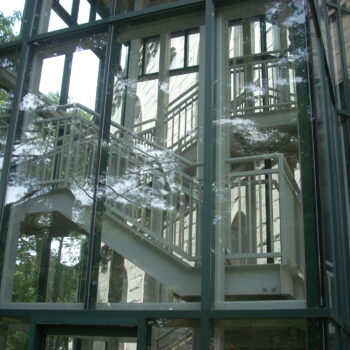
Salus Health Care Forum: February 2025
I’ll say one thing, you know, it’s probably useful to look at failures. We thought: Where are the nurses? Why can’t we get the nurses involved? Traditionally, it’s like 30-40% faculty, 25-35% residents, and then staff, but the staff were not the nurses. As many of you know, in primary care, RNs play a very different role. Most of the people in the clinic are what we’ll call medical office assistants. And so, we decided to use some money to have a special conference for nurses. We would sort of throw nurses into this and do that. And we found it was very positive for a few, but there wasn’t the professional identity among the nurses to want to keep it going. And because the way we were defining nurses was not as RNs who were doing case management, it was as medical office assistants. And I think we do it differently nowadays. It might have been different when we ran the program, but it was still challenging.
It was very different. It’s easy for pharmacists, easy for behaviorists, easy for all these other specialties, but MAs were tough. And some of it were the tactics. Are they going to get time off from work? And, you know, they’re often single women. What are you going to do with childcare and so on? Some of it was those logistics, but it was also the same issue we have with employing them in our clinics. It was a challenge.
Jeremy
That’s fascinating. But not surprising. I think for any of us who have worked in frontline practices, the most difficult thing to do in a residency is meet with the MAs because their work is regimented. They’re frontline employees, pretty low on the power rung. Most of them clock in and clock out.
Warren
And they’re $15 an hour employees, at least in those days.
Jeremy
Yeah, that’s right. The stark differences in their reality. And as you brought up all of the family demands and other issues that people struggle with. Yet, it’s at least my personal experience that a practice’s health is based on how happy and functional the MAs are. That’s been my personal experience. When I walk into a clinic, the MAs are happy. They are greeting patients. They are interactive and asking: How’s my family? And I’m like, wow, it’s like a restaurant, right? When you walk in, you can just tell how well-run they are. Somebody has figured out how to help MAs be proactive. They’re doing lots of things that RNs think they shouldn’t be doing. So, I’ve had that experience that you’re discussing, Warren. The distinctions and hierarchy in nursing can be quite severe.
Warren
And can be vicious, yes.
- Posted by Bill Bergquist
- On March 29, 2025
- 0 Comment



Leave Reply